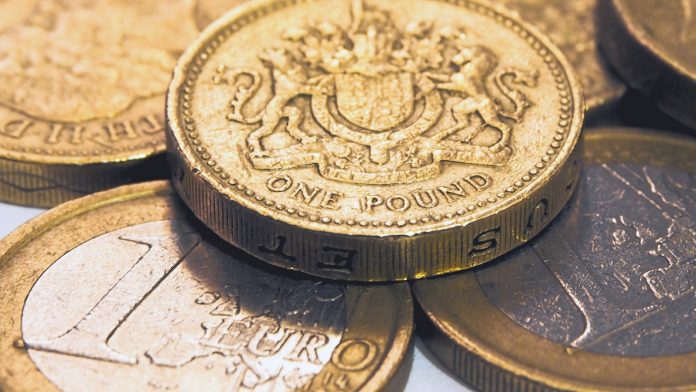- Pound (GBP) looks to PMI data
- Business activity is expected to contract at a slower pace
- Euro (EUR) was supported yesterday by hawkish ECB comments
- Eurozone PMI data is due
The Pound Euro (GBP/EUR) exchange rate is rising after losses in the previous session. The pair fell 0.32% yesterday, settling on Monday at €1.1383, after trading in a range between €1.1342 – €1.1426. At 05:45 UTC, GBP/EUR trades +0.04% at €1.1388.
The euro pushed higher in the previous session, boosted by hawkish commentary from several ECB policymakers. Klaas Knot Send that he believes the ECB needs to raise interest rates by 50 paces points in February and again in March, with further rate hikes to follow. He said it was still too early to say whether the ECB would be able to slow down the pace of rate hikes by the summer.
His hawkish comments were followed by policy maker Peter Kazimir who agreed that two more rate hikes or 50 basis points would be needed in order to tame inflation. He added that the eurozone economy was faring better than expected just a few months ago.
Attention will now turn to German consumer confidence, which is expected to improve in February to -33, up from -37.8 in January.
The data comes after eurozone consumer confidence improved in January to –20.9 up from -22.
In addition, eurozone manufacturing and services activity data will be in focus. The PMI is expected to show that business activity contracted at a slower pace in January, rising to 49.8, up from 49.3 in December. The level 50 separates expansion from contraction.
UK PMI data is also going to be in focus and is likely to be the major driving force behind the pound after the sterling drifted lower in Monday’s session.
UK business activity, as measured by the composite PMI is expected to improve slightly to 49.3, up from 49 in December. While the service sector is expected to see activity hold steady at 49.9, the manufacturing sector is expected to see activity improved slightly from 45.3 in December to 45.5.
Stronger than expected PMI data could help to boost the pound.





